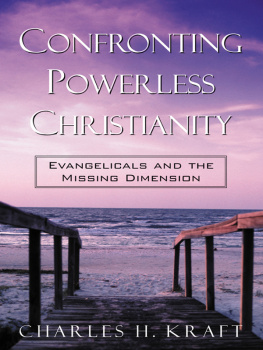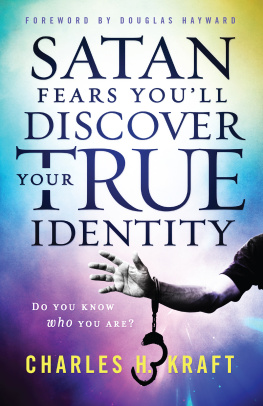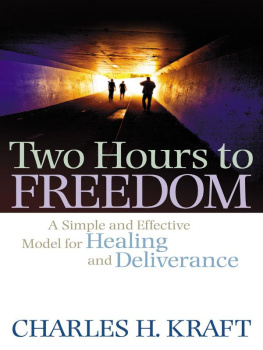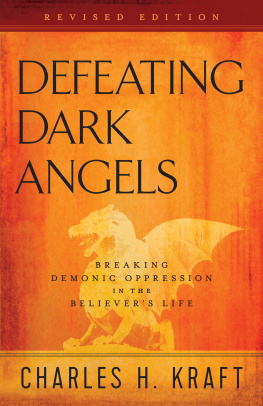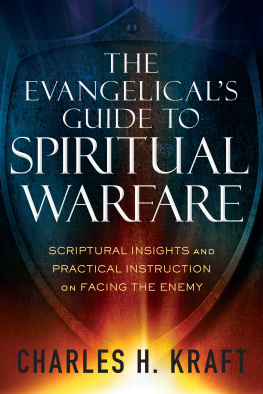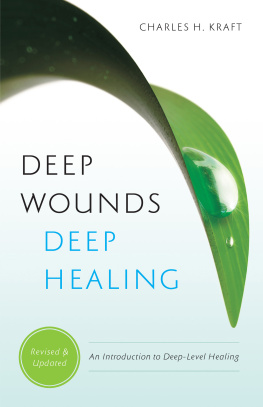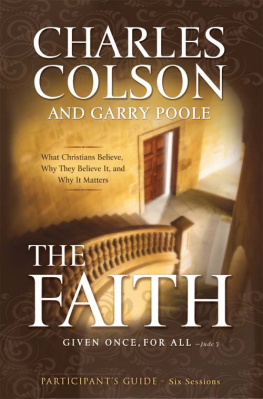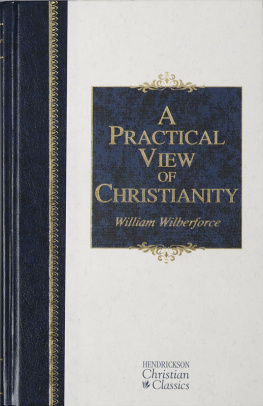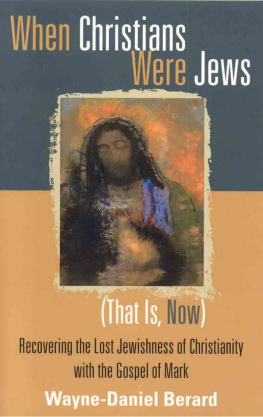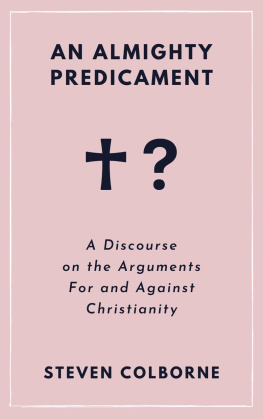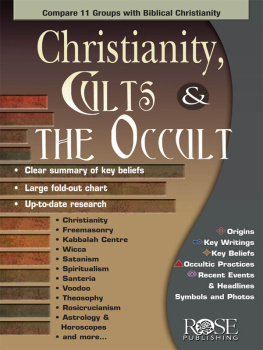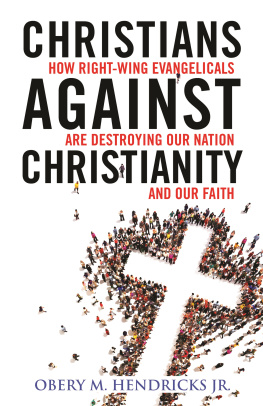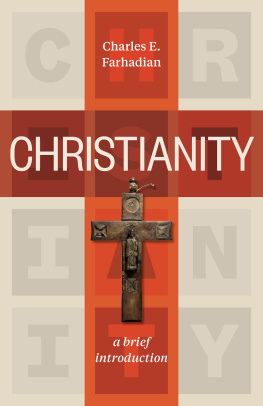Charles H. Kraft - Confronting Powerless Christianity: Evangelicals and the Missing Dimension
Here you can read online Charles H. Kraft - Confronting Powerless Christianity: Evangelicals and the Missing Dimension full text of the book (entire story) in english for free. Download pdf and epub, get meaning, cover and reviews about this ebook. year: 2002, publisher: Baker Publishing Group, genre: Religion. Description of the work, (preface) as well as reviews are available. Best literature library LitArk.com created for fans of good reading and offers a wide selection of genres:
Romance novel
Science fiction
Adventure
Detective
Science
History
Home and family
Prose
Art
Politics
Computer
Non-fiction
Religion
Business
Children
Humor
Choose a favorite category and find really read worthwhile books. Enjoy immersion in the world of imagination, feel the emotions of the characters or learn something new for yourself, make an fascinating discovery.
- Book:Confronting Powerless Christianity: Evangelicals and the Missing Dimension
- Author:
- Publisher:Baker Publishing Group
- Genre:
- Year:2002
- Rating:3 / 5
- Favourites:Add to favourites
- Your mark:
- 60
- 1
- 2
- 3
- 4
- 5
Confronting Powerless Christianity: Evangelicals and the Missing Dimension: summary, description and annotation
We offer to read an annotation, description, summary or preface (depends on what the author of the book "Confronting Powerless Christianity: Evangelicals and the Missing Dimension" wrote himself). If you haven't found the necessary information about the book — write in the comments, we will try to find it.
Confronting Powerless Christianity: Evangelicals and the Missing Dimension — read online for free the complete book (whole text) full work
Below is the text of the book, divided by pages. System saving the place of the last page read, allows you to conveniently read the book "Confronting Powerless Christianity: Evangelicals and the Missing Dimension" online for free, without having to search again every time where you left off. Put a bookmark, and you can go to the page where you finished reading at any time.
Font size:
Interval:
Bookmark:
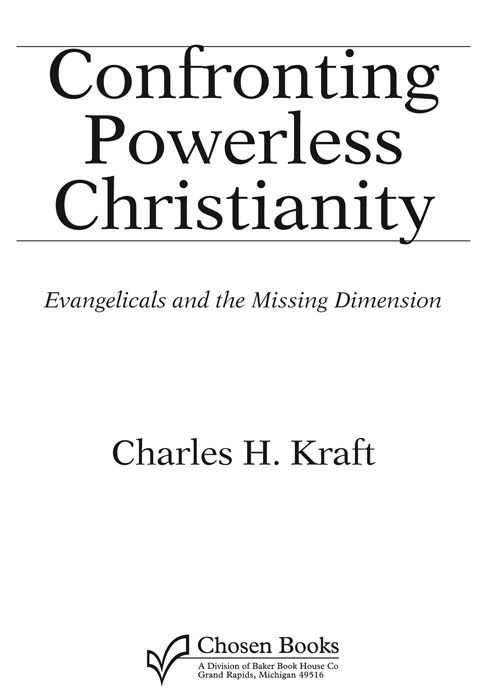
2002 by Charles H. Kraft
Published by Chosen Books
a division of Baker Book House Company
P.O. Box 6287, Grand Rapids, MI 49516-6287
www.chosenbooks.com
E-book edition created 2011
All rights reserved. No part of this publication may be reproduced, stored in a retrieval system, or transmitted in any form or by any meansfor example, electronic, photocopy, recordingwithout the prior written permission of the publisher. The only exception is brief quotations in printed reviews.
ISBN 978-1-5855-8485-7
Library of Congress Cataloging-in-Publication Data is on file at the Library of Congress, Washington, DC.
Unless otherwise indicated, Scripture quotations are taken from the Good News Translation, Second Edition, also known as Todays English Version, copyright 1992, American Bible Society.
Scripture marked NASB is taken from the NEW AMERICAN STANDARD BIBLE . Copyright The Lockman Foundation 1960, 1962, 1963, 1968, 1971, 1972, 1973, 1975, 1977, 1995. Used by permission. www.lockman.org
Scripture marked NEB is taken from The New English Bible. Copyright 1961, 1970, 1989 by The Delegates of Oxford University Press and The Syndics of the Cambridge University Press. Reprinted by permission.
Scripture marked NIV is taken from the Holy Bible, New International Version. NIV. Copyright 1973, 1978, 1984 by Biblica, Inc. Used by permission of Zondervan. All rights reserved worldwide. www.zondervan.com
Scripture marked NKJV is taken from the New King James Version. Copyright 1979, 1980, 1982 by Thomas Nelson, Inc. Used by permission. All rights reserved.
Scripture marked NRSV is taken from the New Revised Standard Version of the Bible, copyright 1989 by the Division of Christian Education of the National Council of the Churches of Christ in the USA. Used by permission.
Contents
I am deeply grateful to God for allowing me to survive heart surgery to finish this book. I also thank my family, Fuller Seminary and ministry colleagues in Deep Healing Ministries for their support and encouragement. Further, my thanks go to Chosen book editors Grace Sarber and Jane Campbell for their considerable help in shaping the final version of this book.
My background is in traditional noncharismatic evangelical Christianity. In that context I was converted, brought up and trained. My undergraduate and seminary studies were completed at Wheaton College and Ashland Seminary, two traditionally noncharismatic evangelical schools, and since 1969 I have been a faculty member of the School of World Mission at Fuller Theological Seminary in Pasadena, California. I served as a missionary under an evangelical mission society, and for the first 38 years of my Christian experience was, like most traditional evangelicals, quite skeptical of those groups that claim to work in spiritual power. Up until 1982 I would have considered myself possibly open to contemporary reports of miraculous events but fairly anti-Pentecostal and skeptical of most charismatic testimonies of the miraculous.
But I have changed. Not my evangelicalism. Not my commitment to Jesus Christ. Not my commitment to biblical Christianity. What has changed is my understanding and experience of what biblical Christianity is intended to be. The only kind of Christianity in the New Testament is a Christianity with powera Christianity quite different from what I experienced during those first 38 years. What I am experiencing now is a Christianity with power. And that is what I am writing about.
I write this book with five major purposes.
1. First, I am convinced that, given our commitment to biblical Christianity, traditional evangelicals ought to be in the forefront of any movement to experience and work in spiritual power. Jesus said we would do what He did (John 14:12); and we have become fairly good at doing part of what He did, the part about loving and caring for people in their misery. But we have not learned to work in Jesus power to release them from that misery. Jesus and His first followers loved and cared for people and also set them free from enemy strongholds in their lives. Thus, my first purpose is to encourage evangelicals to become more biblical than we have been to this point.
2. Second, I and many others are concerned that multitudes of Christians are living in bondage. They desire to experience the freedom Jesus promised (Luke 4:1819), but they have no idea how to get there. They often go to counselors who employ secular means to analyze their problems but seldom bring real healing. Or they go to pastors who use secular techniques with little effect or who simply advise them to pray harder. Or, worse, they misuse Philippians 3:13 in preaching or counseling, advising hurting people simply to forget those things that are behind, as if when we come to Jesus all past wounds simply disappear. If, as is usually the case, their problems do not disappear, then such preaching or counseling leads them to believe there must be something wrong with them spiritually. If we look at the context of this verse, we find that Paul was not suggesting we forget past hurts; rather, he was advising us to put past victories behind us so we can win the present race. I want to help those multitudes of Christians living in bondage know how to experience true freedom.
3. Third, some critics, without looking at the incredible positive results of the deep healing ministry in which I have been involved, insist on questioning its validity. These are people who reason from theory, without benefit of experience, that what we are doing must be wrong because we do some things that are not obvious in the condensed reports in Scripture of what Jesus did. I would like to answer some of their criticisms in a way that is constructive for those not yet into spiritual power.
4. Further, I want to discuss the necessity of experiencing the things Jesus told us we would be able to do if we have faith in Him (John 14:12). It has been in vogue for traditional evangelical theologians and Bible teachers to warn people against basing doctrine on experience, as if reason is a more sure way of arriving at truth than experience. Yet in the real world experience counts for a lot, and theory that does not work in experience is soon discarded. In addition, the insight of behavioral science in human interpretation of the world weighs heavily on the major part that experienceor lack of itplays in our conclusions. How we interpret the Bible, then, is strongly influenced by our experience. This fact divides those who have experienced spiritual power from those who have not.
5. Last, I want to suggest that God intends for us to experiment and discover in the spiritual realm, just as we have learned to experiment and discover in the realms of nature and human life. When God put humans into the world, He seems to have told them very little, leaving much to be discovered with regard to the physical world. The same is true of the human world. Likewise I believe scientific laws and principles exist that are not spelled out specifically in the Bible but that pertain to spirit beings and their relationships to humans.
In connection with these five purposes, I have some important concerns about the kind of evangelical Christianity that I have experienced and see all around me.
1. First, what we do in our churches and training institutions is mostly head stuff. We assume that if people think straight they will behave correctly, so the focus of many sermons is on getting our thinking straight. We insist on this belief despite a mountain of evidence that large numbers of people are not greatly affected by sermonizing or lectures. Nor does learning to think straight automatically result in correct behavior. In addition, focusing on head stuff does little, if anything, to help people who are hurting from deep emotional wounds. And our congregations are full of a very large number of such hurting people.
Next pageFont size:
Interval:
Bookmark:
Similar books «Confronting Powerless Christianity: Evangelicals and the Missing Dimension»
Look at similar books to Confronting Powerless Christianity: Evangelicals and the Missing Dimension. We have selected literature similar in name and meaning in the hope of providing readers with more options to find new, interesting, not yet read works.
Discussion, reviews of the book Confronting Powerless Christianity: Evangelicals and the Missing Dimension and just readers' own opinions. Leave your comments, write what you think about the work, its meaning or the main characters. Specify what exactly you liked and what you didn't like, and why you think so.

